Best Online Resources for Learning SQL and Database Concepts
1. W3Schools – “SQL Tutorial”
W3Schools claims to be the largest web developer site on the Internet. It provides various tutorials and references on web development languages such as HTML, CSS, JavaScript, PHP, SQL, and JQuery, covering most aspects of web programming.
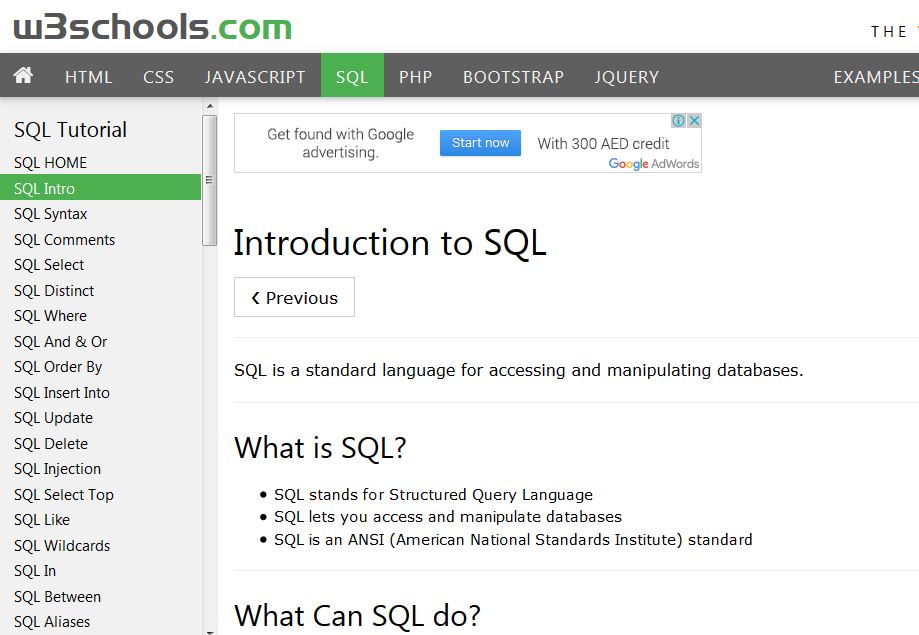
2. Codecademy – “Learn SQL”
Codecademy is an online platform that offers a wide range of free coding courses in programming languages like HTML, JavaScript, jQuery, PHP, Python, and Ruby. In addition to these courses, Codecademy’s students can learn how to manage data with SQL.
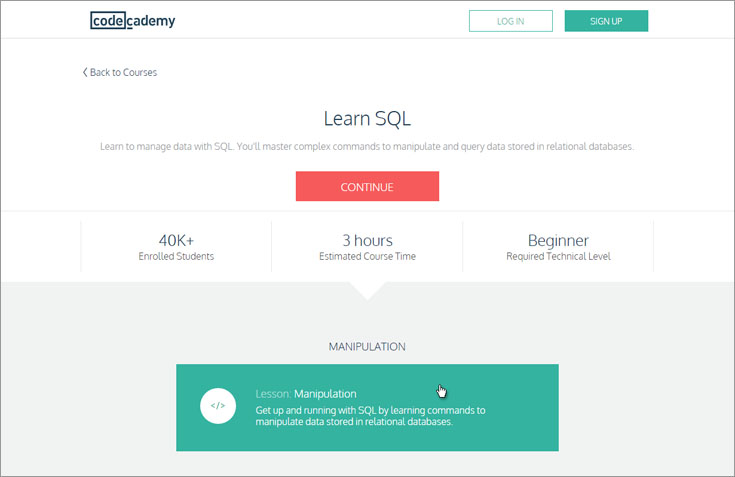
3-1keydata
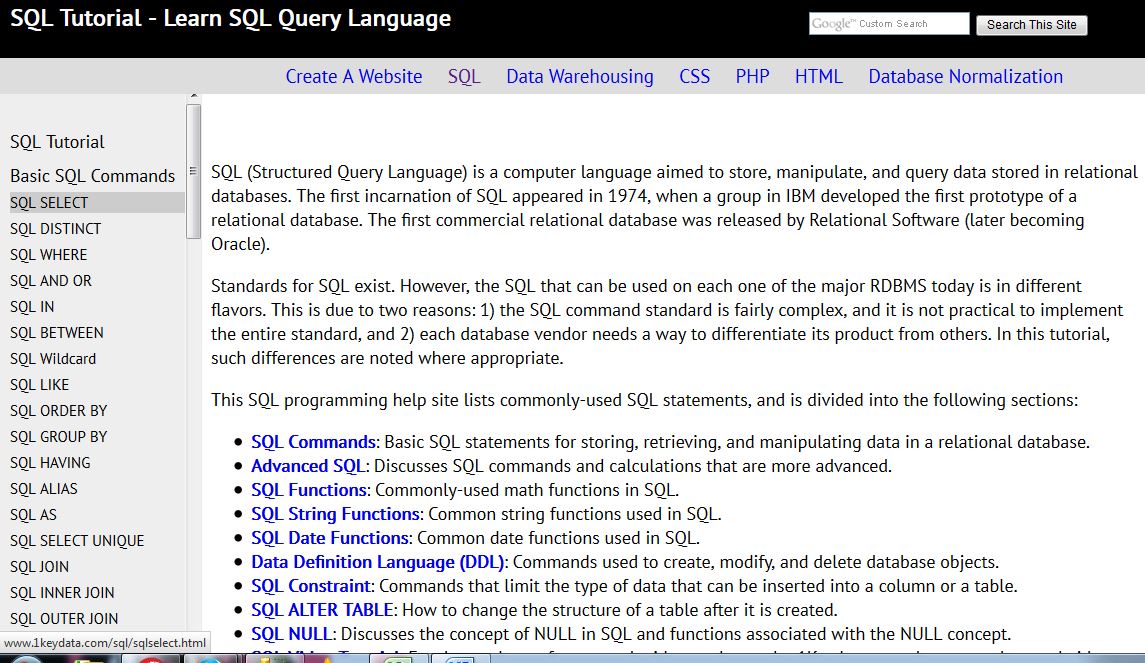
4. Khan Academy – “Intro to SQL”
Khan Academy provides its users with micro-lectures in the form of YouTube videos, lots of practice exercises, and a personalized learning dashboard. Combined, these tools empower learners to study at their own pace inside and outside of the classroom.
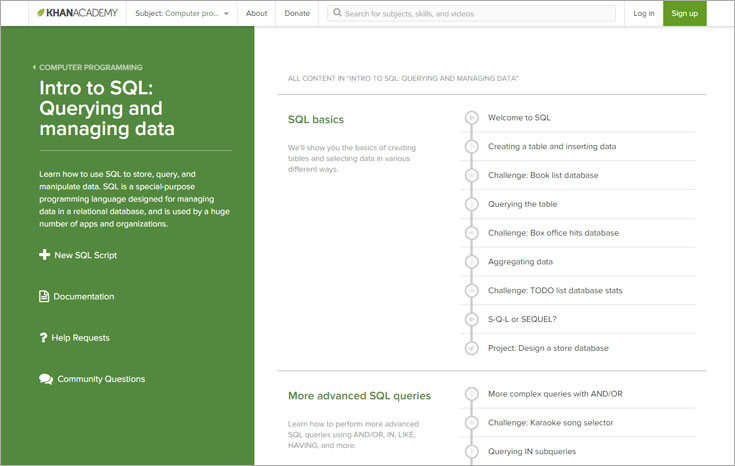
5. SQLZoo
SQLZoo is a nice free and interactive SQL tutorial developed and maintained by Edinburgh Napier University.
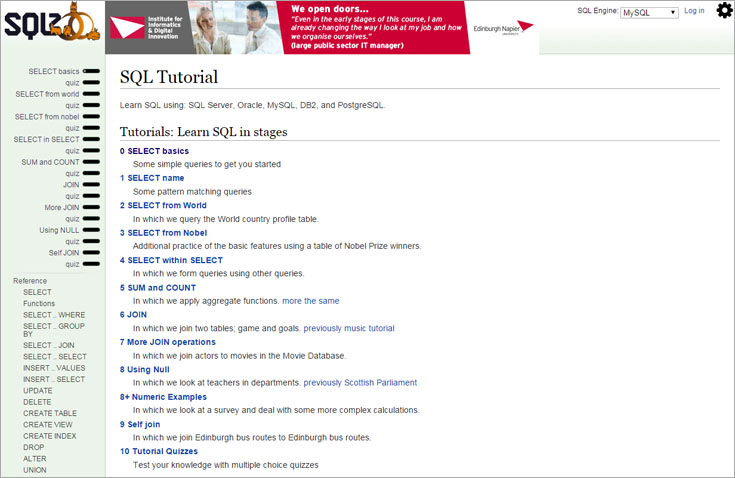
6. Tutorials Point – “Learn SQL”
Tutorials Point claims to be the web’s largest library of tutorials. Indeed, it offers dozens of online courses in computer engineering, information technology, programming languages, and management.
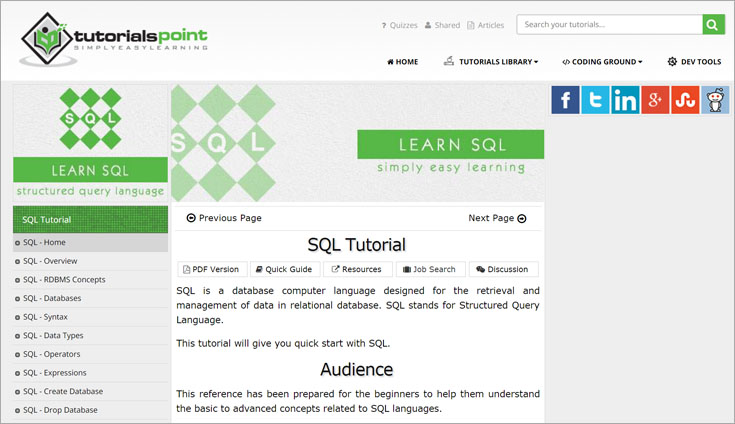
7. Udacity – “Intro to Relational Databases”
Udacity offers interactive online courses aimed at advancing academic and vocational skills. Although Udacity is profit-oriented, some courses are available for free.
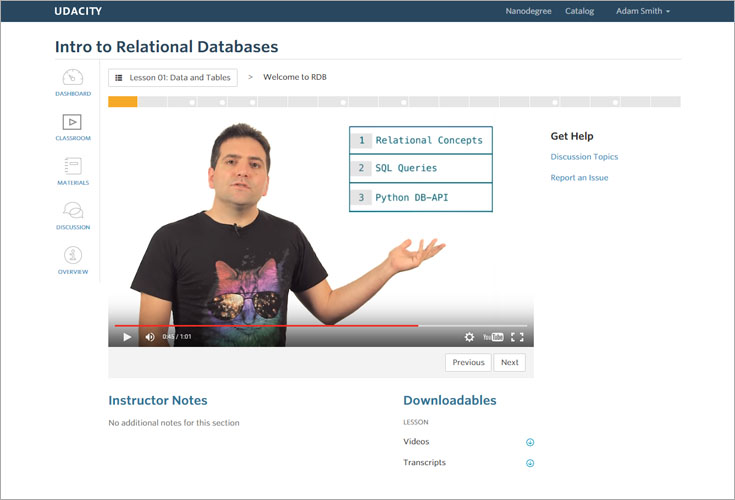
8. SQL Problems and Solutions
SQL Problems and Solutions is an interactive textbook which lets you visualize tables and execute queries against a sample database. The tutorial explains the basic concepts and constructs of SQL and provides examples at various levels of expertise.
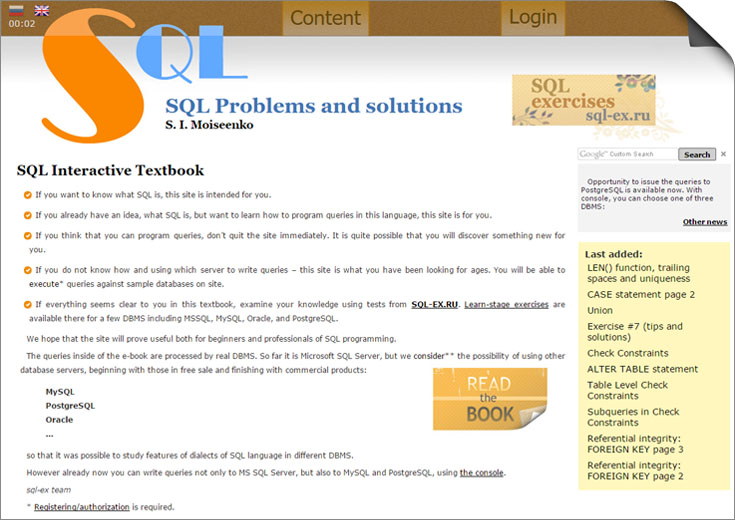
9. Tuts+ – “SQL for Beginners”
Tuts+ offers video courses and written tutorials that teach a wide range of creative and technical skills, including coding. Unlike video courses, all tutorials and articles are completely free. Based around specific projects, they include step-by-step written instructions and screenshots to help you practice and master your skills.
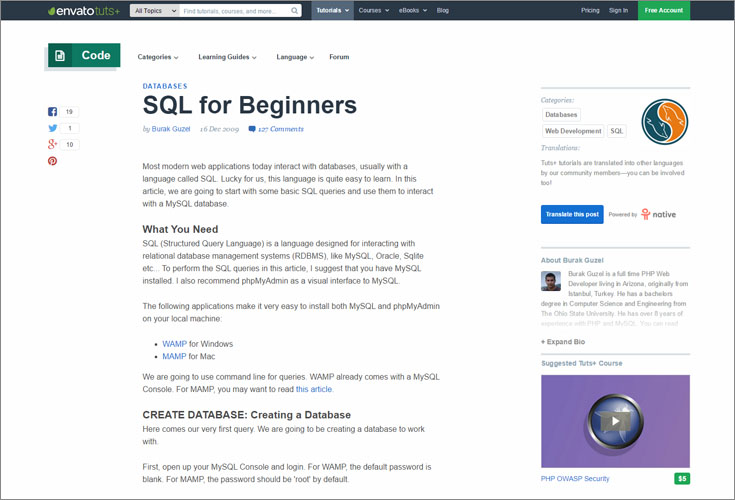
10. Essential SQL
Essential SQL, authored by Kris Wenzel (@sqlkris), is a great place to learn the fundamentals of SQL and database concepts. The course is based on Microsoft SQL Server, which is why the author provides newbie users with a guide on how to get started using this database engine.
For more
18+ Best Online Resources for Learning SQL and Database Concepts
What is SQL?
SQL (pronounced "ess-que-el") stands for Structured Query Language. SQL is used to communicate with a database. According to ANSI (American National Standards Institute), it is the standard language for relational database management systems. SQL statements are used to perform tasks such as update data on a database, or retrieve data from a database. Some common relational database management systems that use SQL are: Oracle, Sybase, Microsoft SQL Server, Access, Ingres, etc. Although most database systems use SQL, most of them also have their own additional proprietary extensions that are usually only used on their system. However, the standard SQL commands such as "Select", "Insert", "Update", "Delete", "Create", and "Drop" can be used to accomplish almost everything that one needs to do with a database. This tutorial will provide you with the instruction on the basics of each of these commands as well as allow you to put them to practice using the SQL Interpreter.
SQL stands for Structured Query Language
- SQL lets you access and manipulate databases
- SQL is an ANSI (American National Standards Institute) standard
What Can SQL do?
- SQL can execute queries against a database
- SQL can retrieve data from a database
- SQL can insert records in a database
- SQL can update records in a database
- SQL can delete records from a database
- SQL can create new databases
- SQL can create new tables in a database
- SQL can create stored procedures in a database
- SQL can create views in a database
- SQL can set permissions on tables, procedures, and views
source
https://en.wikipedia.org/wiki/SQL
http://www.w3schools.com/sql/sql_intro.asp
http://www.sqlcourse.com/intro.html
